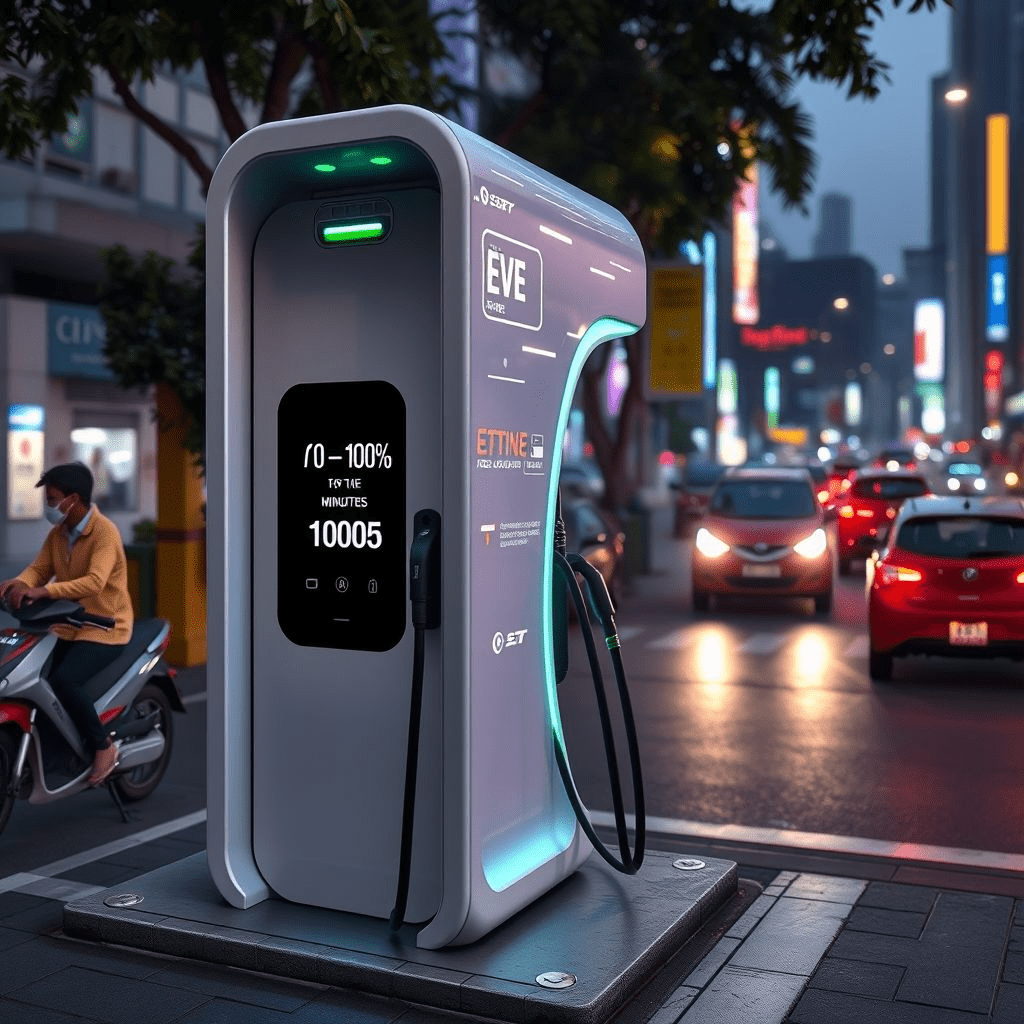Introduction
India’s electric vehicle (EV) industry has been on a rapid growth trajectory, with sales increasing year on year as both consumer adoption and government support grow stronger. But even as the country moves toward greener mobility, one hurdle consistently impedes large-scale adoption: charging infrastructure. Enter Exponent Energy, a Bengaluru-based energy-tech startup that has just launched a revamped 15-minute EV charging station, setting a new benchmark in India’s EV ecosystem.
This development comes at a pivotal moment, addressing two critical bottlenecks: charging time and space efficiency. With its cutting-edge design, Exponent Energy aims to make EVs as convenient as traditional vehicles, unlocking mass adoption potential.
The Launch and Its Significance
On August 24, 2025, Exponent Energy unveiled its latest generation of 15-minute EV charging stations. Unlike earlier versions, the revamped units are more compact, making them easier to install in crowded urban landscapes. They incorporate advanced cooling systems, improved battery communication interfaces, and smarter energy management software.
The highlight remains unchanged yet enhanced—the ability to charge compatible EVs from 0 to 100% in just 15 minutes. For commercial fleets, logistics operators, and individual EV users, this reduces downtime drastically, bringing parity with the convenience of petrol refueling.
Company co-founder Arun Vinayak described the unveiling as “a step toward making EV charging invisible.” He explained:
“When charging becomes so fast and accessible that people stop thinking about it, that’s when EV adoption truly takes off. This 15-minute EV charging station is our way of making that future real for India.”
Why Charging Time Matters
Charging anxiety is as real as range anxiety. Even as EV ranges improve, the perception of long charging waits prevents many consumers from making the switch. Studies by India Energy Storage Alliance (IESA) show that nearly 60% of non-EV owners cite charging time as their top concern.
Exponent’s solution directly targets this hesitation. Instead of asking customers to adapt to the technology, it redesigns the technology to adapt to customer lifestyles.
Technical Innovations Behind the Station
Exponent Energy’s 15-minute station builds on its proprietary e^pack (battery pack) and e^pump (charger) ecosystem.
Key features include:
- Adaptive Cooling System: Ensures thermal stability even during ultra-fast charging, extending battery life.
- Compact Modular Design: Reduces space requirements by 30%, enabling deployment in tight urban settings.
- Grid-Friendly Load Management: Minimizes peak power stress by optimizing charging cycles across multiple units.
- Battery-Agnostic Integration: Compatible with upcoming multi-chemistry EV batteries, ensuring long-term relevance.
Market Relevance in India
India’s EV market is expected to reach 10 million annual sales by 2030, according to NITI Aayog. To support this, over 2 million public chargers will be needed. At present, fewer than 20,000 public chargers exist nationwide.
Exponent Energy’s approach is tailored for India’s conditions: affordable, scalable, and quick to deploy. The company has already signed partnerships with fleet operators, last-mile delivery companies, and auto manufacturers.
EV analyst Dr. Meera Subramanian notes:
“Exponent’s 15-minute EV charging station could be the tipping point. Fleet operators especially cannot afford hours of downtime. With solutions like this, operational efficiency skyrockets.”
Industry Reactions
The launch has been welcomed by both policymakers and the EV community. The Ministry of Heavy Industries, which oversees India’s EV policy, has expressed support for startups building indigenous charging solutions.
Fleet companies like Bounce Infinity and Yulu have also expressed interest in piloting Exponent’s stations at key locations. Meanwhile, automotive giants such as Tata Motors and Mahindra Electric are closely watching compatibility developments.
Challenges Ahead
Despite the optimism, challenges remain:
- Grid Readiness: India’s electricity infrastructure may face stress with widespread ultra-fast chargers.
- Cost of Deployment: Fast-charging units are significantly more expensive than standard chargers.
- Standardization Issues: Without universal protocols, different EV models may face compatibility hurdles.
Exponent Energy says it is addressing these with scalable software updates, government collaborations, and modular pricing models.
Future Roadmap
The company plans to roll out 50 stations across Bengaluru and Delhi NCR within the next 12 months before scaling to tier-II cities. Longer-term ambitions include solar-powered charging, integration with smart grids, and even vehicle-to-grid (V2G) solutions.
Exponent’s vision is bold: a charging station every 2 kilometers in major cities by 2030. If realized, India could rival EV adoption levels in Europe and China.
Conclusion
Exponent Energy’s 15-minute EV charging station is more than a product launch—it’s a signal of how India’s startup ecosystem is solving real infrastructure problems. By tackling charging time, Exponent not only boosts consumer confidence but also accelerates India’s EV revolution.
As the race toward sustainable mobility heats up, innovations like these may define the winners of tomorrow’s automotive market.







